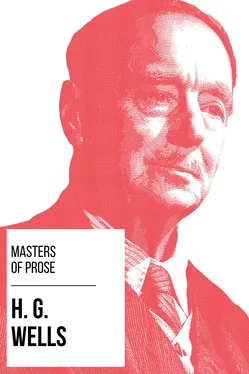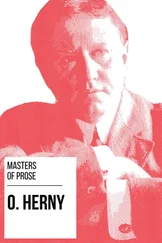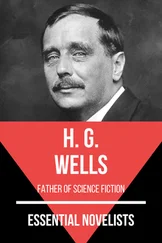The last novel published at the time I write is The Wife of Sir Isaac Harman (1914). The same theme is presented, but in other circumstances. Ellen Sawbridge, when she married, at eighteen, the founder and proprietor of "The International Bread Shops," was an ingenuous schoolgirl; and for more than seven years the change from a relatively independent poverty to the luxuries she could enjoy as the wife of a man who had not outgrown the Eastern theory with regard to the position of women, sufficed to keep her reasonably content. Mr Brumley was the instrument of Fate that seriously disturbed her satisfaction; but she must have come to much the same crisis, if Mr Brumley had never existed. Brumley was a writer, but he was not one of "the really imaginative people, the people with vision, the people who let themselves go"—I quote the expression of George Wilkins, the novelist—and Lady Harman never fell very deeply in love with him. Nevertheless it was through Brumley's interference with her life that she faced the crux of her position as the closely restricted occupant of "a harem of one." She never broke out of that cage. One desperate effort led her, by way of a suffragist demonstration on a post office window, to a month's freedom in prison; but Sir Isaac and society were too clever and too strong for her. When she was enlarged from the solitude of confinement in a cell, she was tricked and bullied into the resumption of her marital engagements. And presumably she must have continued to act as the nurse of her now invalid husband for the rest of her life, suffering the indignities of his abuse and the restrictions of liberty that the paid attendant may escape by a change of situation, if release had not come through Sir Isaac's death. By that time Lady Harman had learnt her lesson. I am distinctly sorry for Mr Brumley, but I should have been seriously disappointed in Ellen Harman if she had consented to marry him.
Thus far I have only traced an imperfect outline of what I take to be the more important motive of the book. But there is a second pattern hardly less essential—namely, the criticism of the management and, à fortiori, of the conception of principle, in relation to the International Bread Shops. Arising out of this interwoven theme we come to some examination of the status of the female employee in general, and particularly in connection with the question of their board and lodging outside business hours. But in The Wife of Sir Isaac Harman the essay manner has been abandoned. Any diversion from the development of the story is carried out by the expressed opinions of the characters themselves; and, as a consequence, the two essential problems are not unduly intruded upon the reader, although for that very reason they may remain longer in his thoughts. One more comment should be added, which is that this is the wittiest book that Mr Wells has yet given us. However serious the motives that give it life, it must be classed as a comedy....
In concluding this brief review of Mr Wells' novels, I feel that I must hark back to a passage in The Passionate Friends in order to indicate a spirit which, if it is not so definitely phrased in this last book of his, is certainly upheld in the matter of the story. For it is that spirit which seems to me the thing that should live and be remembered. Here is one of its more characteristic expressions in the mouth of Stafford, who writes:
"I know that a growing multitude of men and women outwear the ancient ways. The bloodstained organised jealousies of religious intolerance, the delusions of nationality and cult and race, that black hatred which simple people, and young people and common people cherish against all that is not in the likeness of themselves cease to be the undisputed ruling forces of our collective life. We want to emancipate our lives from this slavery and these stupidities, from dull hatreds and suspicions.... A spirit ... arises and increases in human affairs, a spirit that demands freedom and gracious living as our inheritance too long deferred...."
And surely H.G. Wells has striven to give a freer and more vital expression to that spirit, working through his own life, than any other novelist of our day. Indeed I would go further and claim that no such single and definite inspiration can be found in the works of any other secular writer. Wells has given to the novel a new criticism and, to a certain degree, a new form.
SOCIOLOGY
Mr Wells' essays in sociology are not dry treatises, based on Blue books and the gathering together of information and statistics from a formless and largely worthless collection of earlier sources. He has approached this question of man in relation to the State in the same generous spirit displayed in his works of fiction; and it is only by using the word "sociology" in its fuller sense as conceived by Comte, rather than in the restricted sense of "social science" with its implication of economics, as narrowed by Herbert Spencer, that I dare to head this last chapter with so dangerously technicalised a term. Indeed, I would not use the word "sociology" now if I could find a more inclusive heading. For it must be obvious, I think, to anyone who has followed my exposition of the romances and the novels that Mr Wells has a way of treating all such subjects as relate to the betterment of humanity with a broad outlook, an entire disrespect for conventional forms however hallowed by precedent, and a habit of trenchant criticism that could hardly be fettered by an analysis of sociological literature or continual deference to this or that experiment in practice or theory. He approaches his subject with the normal mind of one who sees the world, its customs and rules of conduct, from what is, after all, the point of view of common-sense—another term that has been so grossly misused that the possessor of true common-sense is apt to be regarded as a most uncommon person. It is, in fact, the least common of qualities.
The first three books under this heading form some sort of a trilogy, and have a definite air of consequence. Of these, Anticipations was published in 1901, and Mankind in the Making and A Modern Utopia followed in 1903 and 1905 respectively. The scheme of the first two books combines a criticism of present conditions with a growing constructiveness that points the way to the ideal of what is called "The New Republic." Now, one of the labels that has been most frequently and adhesively affixed to Mr Wells is that of "Socialist," and no doubt it would proclaim his purpose admirably enough if we could satisfactorily define the word in its relation to him. But, personally, I refuse so to label him, because I know that socialism means as many things to different people as religion, and is as much a term of reproach in the mouth of some self-labelled individualists as the designation "Christian" might be in the mouth of the "true believers"—as the Mohammedans call themselves. Wherefore I am particularly anxious in approaching any description of "The New Republic," to make it quite clear that that idealised State is not built of the bricks that have been modelled and cast by any recognisable group of propagandists, working to permeate, or more forcibly to convert, a section of the public under the flags of, say, Fabianism or Social Democracy. The essential thing about Mr Wells is that he is not a Follower, whether of Marx, or Hyndman, or Shaw, or Bebel; he may have learnt from any or all of them, but his theory of social reconstruction is pre-eminently and characteristically his own. He does not believe in the private ownership of land, for example, but I do not remember that he has ever advocated the means of the "Single Tax." And in these sociological essays, as in his novels, his method is that of picturing the more desirable thing or condition, the method of sweet persuasion rather than that of the sectarian who has a pet specific. Nevertheless Mr Wells uses his sharpened weapon of satire with considerable effect when he contemplates and displays for us the world as he sees it to-day. I find no hint of sweetness or persuasiveness on that side.
Читать дальше












